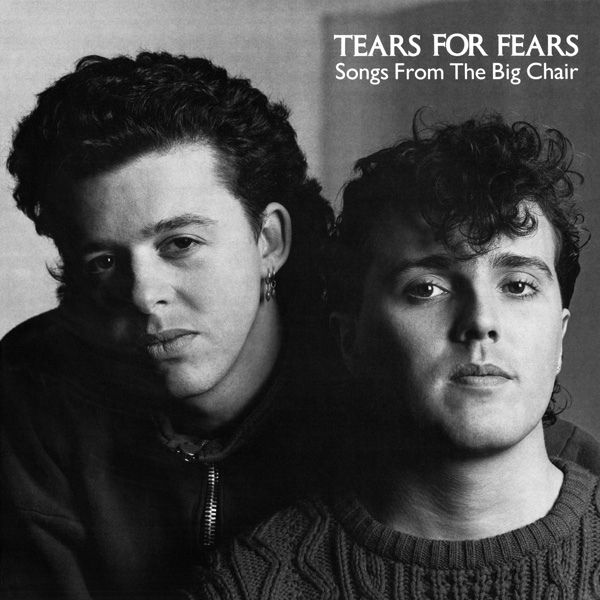In the wake and chaos of grief, we humans long for order. I experienced this longing only a few months ago when my fiancée and I called off our engagement. The pangs of grief were so great that I buried my sadness, hoping to delay the waves of depression that would inevitably come. I spent the next several days trying to forget the pain of losing the woman I loved. Cleaning the house, reading books, listening to records and hanging out with friends gave me a temporary sense of order. Yet the pain lingered despite my best efforts to suppress it.
When grief enters our lives, a cosmic rebalancing is needed. We often react as I did, seeking out hideaways of structure in small ways: organizing a desk, doing the laundry, cooking a meal. But we’re not okay. Choosing to ignore the grief does not help. When we’ve suffered a great injustice, the pain will not go away. If only someone could brush away the pain as simply as scrubbing dirt off our shoulders.
Americans are quick to offer platitudes to those who grieve. Think positively. Everything will work out in the end. Pray and God will take it away, we say. But optimistic clichés only serve as salt in the wounds of despair. Thinking positively begets a swirl of manic highs and lows. We’re afraid to grieve and to remain in grief too long. Oftentimes the best prescription is to weep, and for those around us to remain silent and weep with us.
The ‘80s New Wave band Tears for Fears was founded on the idea of fully pressing into pain as a pathway out of grief. Band members Roland Orzabal and Curt Smith recount in an oral history of their debut album, The Hurting:
Roland Orzabal: “I had a guitar teacher, and she introduced me to a book called The Primal Scream (by [American psychotherapist] Arthur Janov). And I read it, and it became my bible…The therapist would try to lead you to recall something that happened to you, and your way of mourning—and it’s a deep way of mourning—is that you actually cry…I converted Curt, you might say. I suppose both of us were believing we were victims, so we would quite often try and convince other people of the validity of Janov’s ideas, but no one would…”
Curt Smith: Once I’d got the name Tears for Fears in my head, which was from the Arthur Janov book, Prisoners of Pain, I told Roland. I think pretty much straight away we knew that was going to be the name.
While The Hurting explored their personal experience with this psychological process, Tears for Fears’ second album, Songs From the Big Chair, uses the method of primal therapy, a form of psychotherapy which focuses on internal psychic pain, to express collective grief in response to great suffering. Throughout the album Roland Orzabal and Curt Smith tell us that if we saw that our tears can heal, then we Westerners might not be so quick to brush aside our own grief or the grief of others:
Between the searching and the need to work it out
I stop believing everything will be all right
Broken, we are broken
—“Broken”
I believe
That if you knew just
What these tears were for?
They would just pour
Like every drop of rain
—“I Believe”
While the biggest hits from the album (“Shout” and “Everybody Wants to Rule the World”) let out frustrations about injustice in the world, the B-side suite provides a framework of allowing ourselves to grieve.
Sounding like an evangelist for primal therapy, Orzabal provides his testimony on “I Believe” with expressive but purposely weakly delivered vocals. This life is shaped by tears, he sings, beginning with our screams as we exit the womb. And yet our life of tears makes us strong:
I believe
That when the hurting
And the pain has gone
We will be strong
Oh yes, we will be strong…
And I believe
No I can’t believe that every time
You hear a newborn scream
You just can’t see the shaping of a life
The shaping of a life…
These words are set to emotionally vulnerable, almost sentimental music, yet the song ends in a sustained clash of incongruent synthesized tones. A sudden interruption of large cavernous beating drums leads into “Broken,” signaling that, even if we subscribe to Orzabal’s faith in primal therapy, we must not forget our pain. Grief is an ongoing, lived-through process.
A process that is also found in the laments of the Psalms in the Bible. In a lecture series on the Psalms, Old Testament scholar Walter Brueggemann says that they are “models . . . of learning to have faith in the midst of disorientation, pain and loss.” While many Psalms express personal lament, some engage in the form of communal grief that Songs From the Big Chair encourages:
Let the groans of the prisoners come before you;
according to your great power, preserve those doomed to die!
Return sevenfold into the lap of our neighbors
the taunts with which they have taunted you, O Lord!
But we your people, the sheep of your pasture,
will give thanks to you forever;
from generation to generation we will recount your praise.
—Psalm 79:11-13
How long, Lord God Almighty,
will your anger smolder
against the prayers of your people?
You have fed them with the bread of tears;
you have made them drink tears by the bowlful.
—Psalm 80: 4-5
But you have rejected us and disgraced us
and have not gone out with our armies.
You have made us turn back from the foe,
and those who hate us have gotten spoil.
You have made us like sheep for slaughter
and have scattered us among the nations
—Psalm 44: 9-11
The Psalms’ laments are a way of “handing those dark proclivities over to God’s good grace,” Brueggemann writes. “And if we do not do that, the way these Psalms invite us to do that, then we are left with two options of denying them [dark proclivities] or acting them out.”
Like the Psalmist, the song “Broken” addresses our need to act out the grief process. With all the fire and brimstone of a megaphone street preacher, Tears for Fears proclaims our collective brokenness. Searching for a path to relief, they find that everything will not be all right. “We are broken,” they sing, and a thundering bass-drum combo undergirds the crunching dissonance of the telephone-toned keyboard melody, pushing us into the maelstrom of heartbreak and mourning.
Interjected between the studio and live versions of “Broken” is a personal narrative of romantic heartbreak. In “Head Over Heels” the crushing and oppressive keyboard melody from “Broken” transforms into a beautiful yet stately piano line with a slight air of unsettledness. On its own, the song deals with the anxieties and pressures of a romantic relationship.
Something happens and I’m head over heels
Ah don’t take my heart don’t break my heart
Don’t throw it away
I made a fire and watching it burn
I thought of your future
With one foot in the past now just how long will it last
Placed between two laments of brokenness, however, it plays as a narrative, a storied example, of what pressing into the pain of grief looks like.
In my own Christian context, personal stories of fallenness, salvation and restoration serve as embodied examples of Christianity’s meta-narrative: life in a sinful world, Jesus’ death and resurrection, and the new heavens and earth. “Head Over Heels” operates in a similar manner as a storied explanation of brokenness that both personalizes and validates our need for healing through tears.
Closing out the album is “Listen,” featuring a bubbling rounded synth, sampled operatic singing and record scratching, pulling the listener in various directions without ever settling into a space of respite. The cryptic lyrics further confuse the listener: “Mother Russia badly burned/ Your children lick your wounds/ Pilgrim father sailed away/ Found a brave new world/ Cumpleaños chica, no hay que preocuparse/ Soothe my feeling” While the title of the song calls us to listen closely to the words, we are not meant to understand their meaning. Obfuscation is the point, demonstrating that no one knows the true depths of grief, even as we seek to soothe our anguish.
Christians believe that one day there will be an end to these tears, that God will personally wipe away every last drop from our eyes. But as the Psalms and Songs From the Big Chair remind us, as long as we live in a broken and suffering world, we cannot wipe our tears away. A life-altering diagnosis, the end of a marriage, the death of a loved one, a shooting in a church, the sale of baby parts, refugees fleeing a war-torn country: for these things we must allow ourselves to be deeply troubled and to weep. As a psalmic lament, Songs From the Big Chair calls all of us to grieve, but also to find hope in and through our tears. Then maybe we can begin to understand what our tears are for, letting them pour like every drop of rain, and we would begin to heal.




